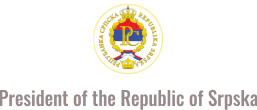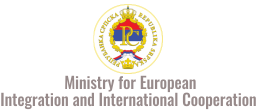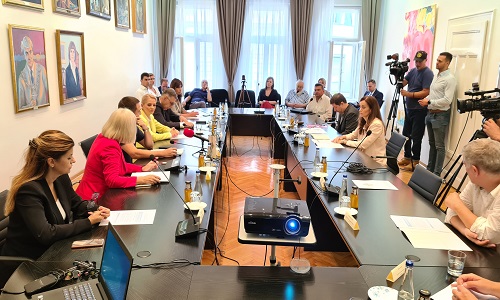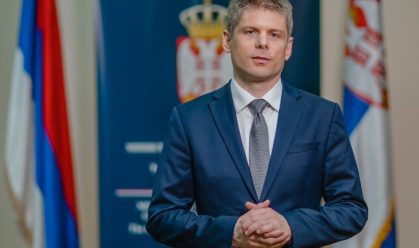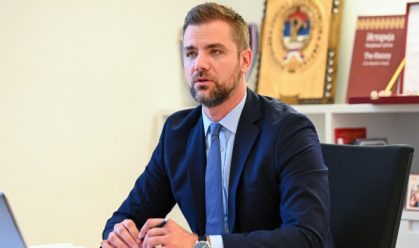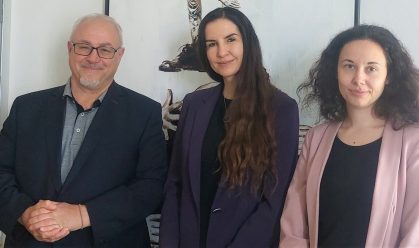The Serbian language and Cyrillic alphabet are the foundation of cultural and national identity, and protecting them is key to Serbian cultural survival, said the Minister of Education and Culture of the Republic of Srpska, Natalija Trivić, in Belgrade, at the Days of Srpska in Serbia.
The tenth Days of Srpska in Serbia was ceremoniously opened in Belgrade.
Trivić, who is participating in the panel on the topic Identity: language, art, culture - The uniqueness of the cultural space of the Republic of Srpska and Republic of Serbia at the Belgrade University of Arts, emphasized the uniqueness of the space of Srpska and Serbia.
‘The single nation identity is indeed nurtured between Serbia and Srpska through various forms of cultural, material and spiritual heritage, so that we have adopted the Charter on the Serbian Cultural Space, that we are organizing various programs like this panel, but also various forums on protecting the Cyrillic alphabet, Serbian language and script’, Trivić said.
She stated that culture was a key resource for development and that active involvement of the public in the process of heritage preservation played a major role in raising citizens’ awareness of the importance of cultural heritage, and its importance for the affirmation of cultural identity through appropriate education and information about cultural heritage.
‘We must preserve, protect and pass down the cultural heritage to future generations, as our ancestors had passed it down to us. If we know who we are, in which direction we are heading, and what exactly we possess, then we can define the culture of our society. By building a cultural identity, a society defines culture’, Trivić said.
She pointed out that the Law on the Protection, Preservation and Use of the Language of the Serb People and Cyrillic Script had entered into force in the Republic of Srpska to regulate the system of protection, preservation and the manner of using the language and script of the Serb people as an intangible cultural heritage, and to establish the way of societal care for the protection and preservation of the language of the Serb people and Cyrillic alphabet.
She noted that the same law, with minor alterations adapted to the state system and circumstances, had been passed on 15 September last year in the Republic of Serbia, announced the line ministry.
‘The adoption of this piece of legislation is a natural and logical next step in implementing the Charter on the Serbian Cultural Space, an agreement that defines joint action of the Republic of Srpska and Serbia, signed between the two competent ministries’, said Trivić.
The Minister of Education, Science and Technological Development of Serbia, Branko Ružić, emphasized the importance of Serbs being together and feeling mutual closeness at all times.
‘We are one nation, mentally, culturally, and from the aspect of tradition, history, religion, and we are not in a position to even imagine it possible for someone to deny us the affirmation of such rights’, said Ružić.
He pointed out that there were attempts to present the Drina river as a divider of the Serbian people, noting that it was not, and that the Drina rather connected, that it was the backbone that connects in every sense.
‘The obligation of Serbia as a motherland is to affirm all the values of the Serbian people both in the Republic of Srpska and everywhere where Serbs live, and thus to put Serbian identity on the pedestal it deserves, naturally, without endangering anyone else’, said Ružić.
The Head of the Representative Office of the Republic of Srpska in Serbia, Mlađen Cicović, said that the Serbs in the Republic of Srpska and in Serbia had no more urgent or important task than protecting and nurturing the Serbian language and script, the Cyrillic alphabet, the Orthodox faith, their traditions and history.
He emphasized that the uniqueness of the Serbian cultural, artistic and information space on both sides of the Drina was a great encouragement and strongest support in protecting the language, script, religion and national treasures.
Cicović stated that the Srpska Days in Serbia, which included this panel, had become another bridge over the Drina, the widest and most beautiful one.
Participants in the panel were rector of the University of Arts in Belgrade, Mirjana Nikolić, deputy director of the National Library of Serbia, Dragan Purešić, director of the Svetozar Marković University Library, Aleksandar Jerkov, director of the National and University Library of the Republic of Srpska, Ljilja Petrović Zečić, acting director of the National Theater of the Republic of Srpska, Dijana Grbić, editor of the RTS Cultural and Artistic Program, Vladimir Kecmanović, and editor of the RTS Cultural Program, Ernest Zavila.
